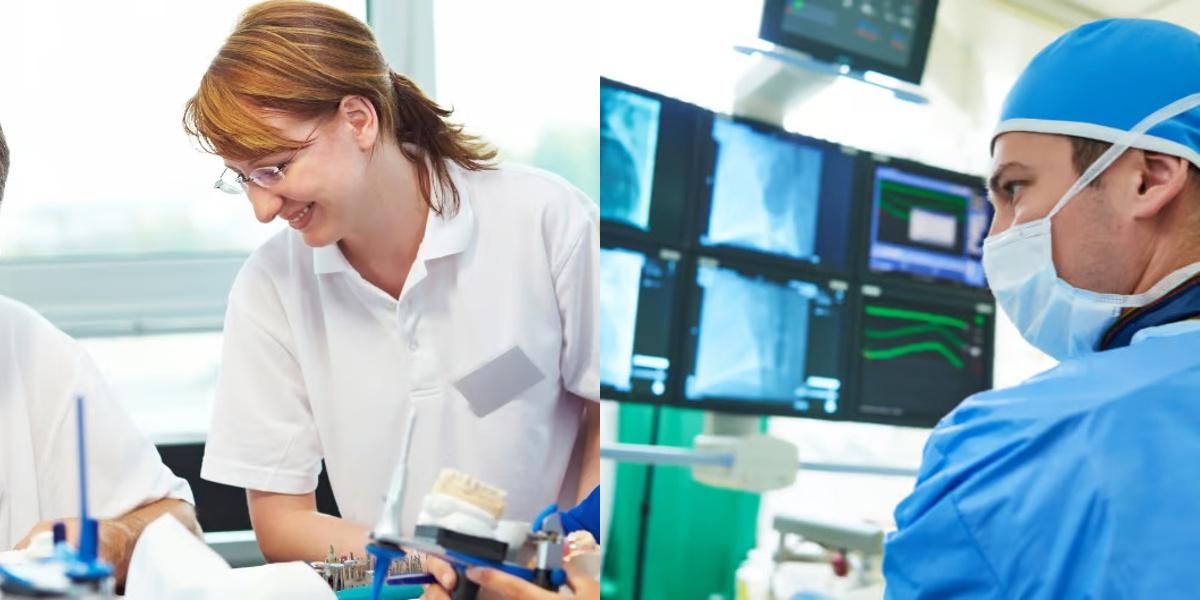Psychiatric Technician vs Radiology Technician

Are you interested in a healthcare career but unsure whether to focus on mental health support or medical imaging technology? Both Psychiatric Technicians and Radiology Technicians play essential roles in the healthcare system, yet their responsibilities, training, and work environments are vastly different.
This guide breaks down the key differences between these two professions, including job descriptions, salaries, and career outlooks. By the end, you'll have a clear idea of which path best fits your interests and goals.
Key Points:
- Psychiatric Technicians provide care for patients with mental health issues, while Radiology Technicians operate imaging equipment to assist in diagnoses.
- Radiology Technicians earn higher median salaries compared to Psychiatric Technicians.
- Both roles offer strong job growth and opportunities for advancement.
- Training for Psychiatric Technicians is generally shorter and less expensive, while Radiology
- Technician programs are more technically focused and may include certification requirements.
- Psychiatric Technicians focus more on direct patient care, while Radiology Technicians focus on technical imaging tasks.
Radiology Technician:
- Education: Associate degree in radiologic technology (typically 2 years).
- Training: Includes classroom learning and clinical internships to develop imaging skills.
- Certification: Required in most states—ARRT (American Registry of Radiologic Technologists) certification is widely recognized.
Career Outlook and Salary
Psychiatric Technician:
- Job Growth: Expected to grow 17% by 2033—faster than average.
- Salary: Median annual salary of $39,700, with top earners making over $59,990.
- Why Demand Is Rising: Increasing focus on mental health services and aging populations requiring psychiatric care.
Radiology Technician:
- Job Growth: Expected to grow 6% by 2033—faster than average.
- Salary: Median annual salary of $73,410, with top earners exceeding $102,380.
- Why Demand Is Rising: Advances in imaging technology and aging populations requiring diagnostic procedures.
Which Career Path Is Right for You?
Choose Psychiatric Technician if:
- You enjoy helping people emotionally and providing direct patient care.
- You prefer shorter and less expensive training programs.
- You’re interested in mental health and therapy roles.
Choose Radiology Technician if:
- You prefer technical work involving machines and imaging equipment.
- You’re comfortable with longer training programs and earning certifications.
- You want higher earning potential and enjoy working with technology.
Final Thoughts
Both Psychiatric Technician and Radiology Technician careers offer fulfilling opportunities in the healthcare industry.
- If you’re passionate about mental health care and emotional support, the Psychiatric Technician path might be ideal.
- If you prefer technology-driven diagnostic work, a Radiology Technician role could be the better fit.
No matter which path you choose, Dreambound can help you find the right training programs to get started on your journey today!
To gather more information about these two vocations, check out:

Blessed Joy Amarga is part of the Growth and Sales teams at Dreambound. She helps bring in new leads, increasing the number of people at the top of the sales funnel, and supporting the team in creating graphics to boost social media engagement. Blessed is also a Licensed Architect. Outside work, she enjoys traveling and exploring new places for her vlog.



